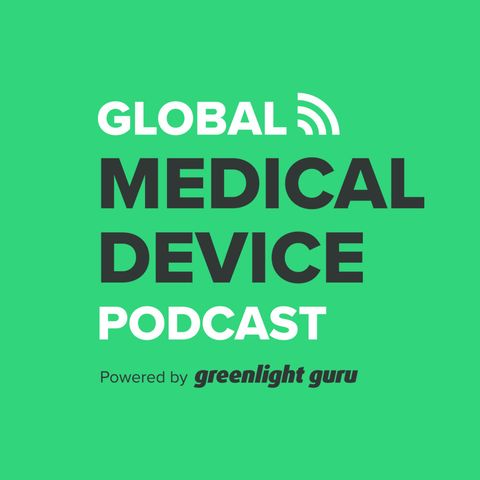11 NOV 2020 · As the COVID-19 global pandemic continues, emergency use authorization (EUA) has become a highly utilized regulatory pathway to market in the United States.
In this episode of the Global Medical Device Podcast, Jon Speer talks to Erica Loring, a medical device guru at Greenlight Guru.
Jon and Erica discuss the positive and negative impacts of the EUA program on the medical device industry as well as the need for increased responsiveness to streamline distribution of in-demand products and services, such as tests, masks, and ventilators.
Some of the highlights of the show include:
EUA and PPE: Erica comes from a regulatory background and describes how the huge influx of EUA applications for ventilators and masks to in-vitro diagnostic device (IVD) and lab developed tests affect FDA tiers that reach consumers and companies.
The FDA is government-funded and has a limited amount of resources. As a result, it’s scrambling to allocate people to review EUA submissions and 510(k)s for COVID-19 related tests to be legally marketed.
Due Diligence: FDA’s review periods on other products have slowed down, but timelines still need to be met. Also, the quality of reviews has declined, not only with the EUAs but 510(k)s because of limited resources.
FDA Statistics: A 510(k) review is supposed to take up to 90 days from the point of submission to an official response from the agency. However, EUA applications are being reviewed quickly to address a global public health crisis. Maybe too quick for regulatory quality and risks to be properly evaluated.
Compare and Contrast: Erica describes the pros and cons of false-negative and false-positive results for COVID-19 and/or IVD tests. What risks do those results pose to the public?
Research Use Only (RUO) to IVD: Companies that are not or have never been a medical device company need to have a quality management system (QMS), appropriate resources, and manufacturing transfers that can scale. This process takes time.
FDA EUA Guidance: Proper development and design control provisions should not be viewed as optional. Companies should not cut corners but be expected to follow best practices and post-market challenges for quality events.
EUA Impact Everywhere: Non-EUA products, procedures, and supplies were delayed, costs increased, and biocompatibility testing was affected due to the push for COVID-related products and services and eventual lift of those EUAs?


